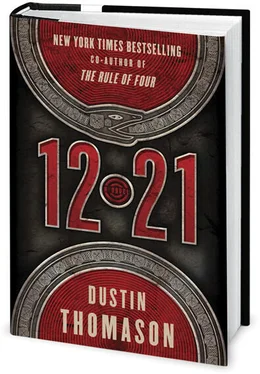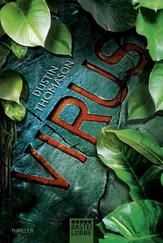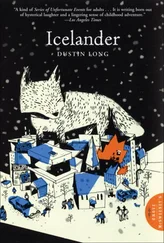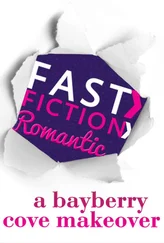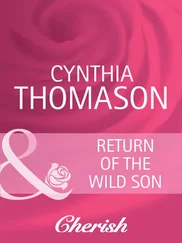“It’s talking about a drought,” Rolando said. “Who would’ve been allowed to write something like this?”
Chel had never seen anything like it. Written Maya records were generally ancient press releases for kings. The royal “scribes” who wrote them—half press secretaries, half religious leaders—didn’t dare mention anything that undermined their rulers.
Never before had Chel seen a scribe writing about the difficulties of daily life. Predictions of rain were inscribed on stone columns at the ruins and in the Madrid and Dresden Codices, but for a scribe to report an ongoing drought was unheard of. It was a king’s job to bring the rains, and such a discussion would embarrass any king who couldn’t deliver.
“Only a scribe could have this kind of skill,” Rolando said, gesturing at a perfectly executed picture of the maize god.
Chel studied the words again. The penalty for writing this could well have been death. No rain has come to give nourishment in a half cycle of the great star. The great star was Venus, and a half cycle was almost fifteen months. What the scribe was describing would be by far the longest
drought in the known Mayan record.
“What is it?” asked Rolando.
“It’s not just the drought. He’s talking about the depletion of the maize stores,” Chel said. “He’s talking about endangered animals and diminishing amounts of arable land. No one would have been permitted to write something like this. It’s basically a description of the end of the civilization.”
Rolando flashed another grin. “You think…”
“He’s writing about the collapse.”
* * *
OVER THE COURSE of Chel’s career, the question that had bedeviled her more than any other was the “collapse” of her ancestors’ civilization at the end of the first millennium. For seven centuries, the Maya had built cities and innovated in art, architecture, agriculture, mathematics, astronomy, and commerce. But then, six hundred years before the Spanish conquistadores arrived, city-states stopped expanding, construction halted, and scribes in the lowlands of Guatemala and Honduras stopped writing. Within a span of only half a century, urban centers were abandoned, the institution of kingship disappeared, and the classic era of Maya civilization came to an end.
Colleagues of Chel’s had a variety of theories about what caused the collapse. Some suggested eco-recklessness: aggressive farming practices and disregard for deforestation. Others claimed that, through continuous warfare, hyper-religiosity, and sacrificial bloodlust, the ancients brought on their own demise.
Chel had a skeptical view of all these ideas. She believed they were rooted in a European inclination to belittle indígenas . Exaggerations of human sacrifi ce had plagued the Maya since the Spanish landed, and the collapse had been used for centuries as proof that the conquistadores were more evolved than the savages they’d conquered. Proof the Maya couldn’t be trusted to rule themselves.
Chel believed that the collapse was caused by natural mega-droughts that spanned decades and made large-scale agriculture impossible for her ancestors. Studies done on riverbeds in the area suggested that the end of the classic era was the driest in seven millennia. When these extended dry periods made cities uninhabitable, the Maya simply adapted. They reverted to subsistence farming and migrated to small villages like Kiaqix.
“If we could prove this is an actual description of the collapse,” Rolando said giddily, “it would be a landmark.”
Chel imagined what else they might find on these pages. Imagined how far the codex would go toward answering what had, to date, been unanswerable. Imagined how she could one day show it to the world.
“And if we could prove the collapse was the result of mega-droughts,” Rolando continued, “it would cut the balls right off those generals too.”
This possibility gave Chel yet another surge of adrenaline. In the last three years, tensions had flared again between ladinos and the indígenas . Civil-rights activists had been killed, crimes perpetrated by the same ex-generals who’d murdered Chel’s father. Politicians had actually invoked the collapse on the floor of Parliament: The Maya were savages who’d destroyed their environment once, they’d claimed, and would do it again if they were allowed to keep their valuable land.
Could the book prove otherwise once and for all?
The phone rang in Chel’s office at the back of the lab. She checked the clock. It was just after eight a.m. They needed to pack up the codex and put it in the vault. People would start filtering into the museum soon, and they couldn’t risk questions.
“I’ll get it,” Rolando said.
“I’m not here,” she called after him. “You have no idea when I will be back.”
A minute later, Rolando returned with a curious look on his face. “It’s a translator service from a hospital,” he said.
“What do they want?”
“They have a sick man who was brought in three days ago, and no one’s been able to talk to him. Now somehow they’ve concluded he’s speaking Qu’iche.”
“Tell them to call the church in the morning,” she told him. “Someone over there can translate for them.”
“They told me the patient keeps saying one word over and over again, repeating it like some kind of mantra.”
“What word?”
“Wuj . ”
12.19.19.17.11
DECEMBER 12, 2012
THEY REPEATED THE GENETIC TESTING AT THE PRION CENTER. John Doe’s chart, lab tests, and MRI scans were scrutinized at CDC headquarters in Atlanta. By the following morning, after all-night meetings and emergency conference calls, the doctors all agreed with Stanton: The patient had a new strain of prion disease, and it came from tainted meat.
After dawn, Stanton reviewed the case with his deputy, Alan Davies, a brilliant English doctor who’d spent years studying mad cow across the Atlantic.
“Just got off with USDA,” said Davies. They were in Stanton’s office at the Prion Center. “No positive tests for prion at any of the major meat packagers. Nothing suspicious in the herd records or feed logs.”
Davies wore the vest and pants from a pin-striped three-piece suit, and his long brown hair was so perfectly set on his head, it looked like a toupee. He was the only lab rat Stanton had known who wore a suit, his way of showing Americans how much more civilized their British cousins were.
“I want to see the tests myself,” Stanton said, rubbing his eyes. He was having trouble fighting his exhaustion.
“That’s just the big farms,” Davies replied, smirking. “USDA couldn’t cover all the small farms if they had a year. Never mind the sheep and pigs. Somewhere out there, some careless bugger is probably still grinding up contaminated brains or whatever the hell else and shipping them to God-knows-where.”
Tracking the original source was crucial in any food-borne illness. Vegetables with E. coli had to be traced back to the farms where they were grown, so the farms could be shut down and their wares pulled from the shelves. Salmonella had to be traced back to the chicken coop, so every egg could be recalled. It could be the difference between one victim and thousands.
Stanton and his team didn’t even know what animal source to concentrate on. Cows’ prions could obviously cross the species barrier, so beef was the first suspect. But pigs had prions remarkably similar to those of cows. And a prion disease called scrapie had killed hundreds of thousands of sheep throughout Europe; Stanton had long feared lamb might one day carry mutated prions to humans too.
Читать дальше
